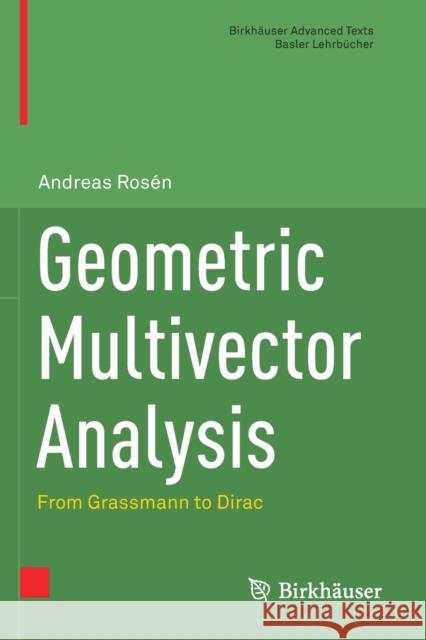Geometric Multivector Analysis: From Grassmann to Dirac » książka
topmenu
Geometric Multivector Analysis: From Grassmann to Dirac
ISBN-13: 9783030314132 / Angielski / Miękka / 2020 / 465 str.
Geometric Multivector Analysis: From Grassmann to Dirac
ISBN-13: 9783030314132 / Angielski / Miękka / 2020 / 465 str.
cena 261,63
(netto: 249,17 VAT: 5%)
Najniższa cena z 30 dni: 231,29
(netto: 249,17 VAT: 5%)
Najniższa cena z 30 dni: 231,29
Termin realizacji zamówienia:
ok. 16-18 dni roboczych.
ok. 16-18 dni roboczych.
Darmowa dostawa!
Kategorie:
Kategorie BISAC:
Wydawca:
Birkhauser
Seria wydawnicza:
Język:
Angielski
ISBN-13:
9783030314132
Rok wydania:
2020
Wydanie:
2019
Numer serii:
000831894
Ilość stron:
465
Waga:
0.66 kg
Wymiary:
23.39 x 15.6 x 2.46
Oprawa:
Miękka
Wolumenów:
01
Dodatkowe informacje:
Wydanie ilustrowane











